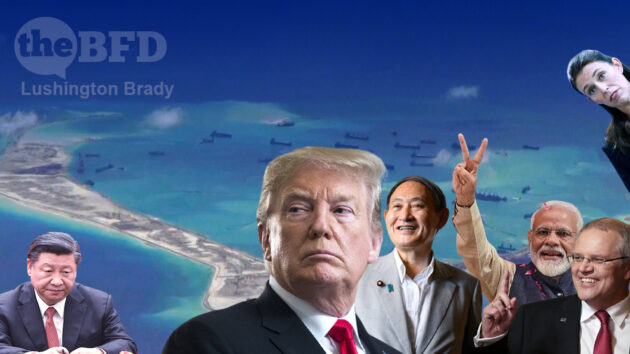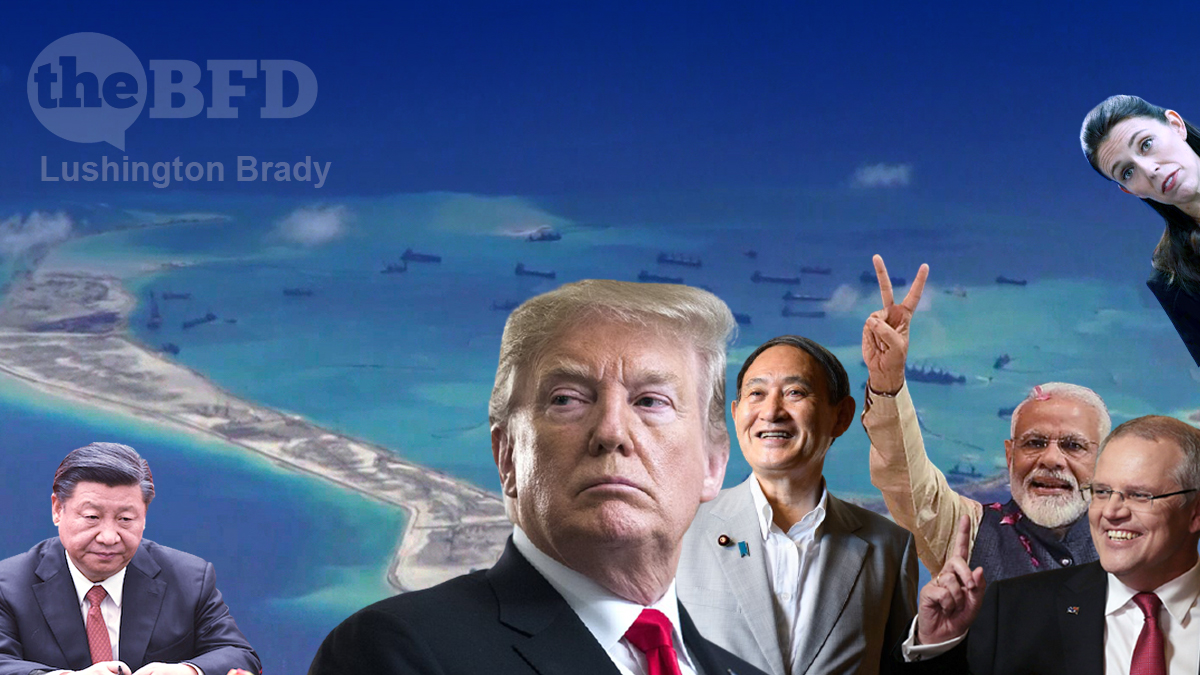In the Cold War, the NATO alliance formed the bulwark of the free world against deadly communist expansion. The Iron Curtain across eastern Europe was often an uncomfortable flashpoint and the Berlin Wall was an open scar, but the alternative, an aggressive, brutally expansionist Soviet Union given free reign in Europe would have been far worse.
A New Cold War with the sole remaining communist major power is fast freezing in place, this time in the Pacific. Instead of NATO, a so-far informal alliance, is forming against aggressive Chinese expansionism.
[Japanese] Prime Minister Yoshihide Suga and Australian leader Scott Morrison on Tuesday agreed in principle on a Reciprocal Access Agreement (RAA) that will more closely align the allies through a legal framework allowing each other’s troops to visit for training and to conduct joint military operations.
Despite then-President Barack Obama sneering at concerns over America’s degrading blue-water fleet, the US Navy has since emerged as the front-line weapon in the soft gunboat diplomacy of the region. A senior Navy commander has welcomed the Australia-Japan agreement.
“That kind of agreement is really helpful and encouraging to everybody in the region. We are very supportive of that agreement and we look forward to exercising along right with them,” Vice Admiral William Merz, commander of the U.S. Navy’s Seventh Fleet, which is headquartered in Japan, said during a roundtable briefing.
The agreement between Canberra and Tokyo, Japan’s first with another country since a similar agreement with Washington in 1960, comes as the two countries work more closely with the United States and India as part of an informal grouping known as the “Quad” as they grow more concerned about Chinese activity in the South China Sea and East China Sea.
Suga hosted foreign ministers from the Quad in Tokyo last month before heading to Vietnam and Indonesia to deepen ties with key Southeast Asian nations.
Which might beg the question: Where’s New Zealand?
New Zealand is part of the Five Eyes intelligence network. But the viability of Five Eyes has been threatened by China’s growing influence in some of its members’ telecommunications infrastructure. Britain originally allowed the Chinese telco Huawei to build parts of its sensitive 5G, but has since pledged to reverse the decision. Canada is yet to decide, but is under heavy pressure from China. The Ardern government has wavered on the issue.
To her credit, new Foreign Minister Nanaia Mahuta “issued a mild rebuke” to China over its diplomatic bullying of Five Eyes members for their stance on Hong Kong.
On the other hand, Prime Minister Jacinda Ardern seems all-too-keen to sign up to China’s notorious BRI.
Beijing, which says its intentions in the region are peaceful, has described the Quad as a “mini-NATO”[…]
The Japan-Australia agreement also came under similar criticism in China on Tuesday, with the state-backed newspaper the Global Times saying the United States was “using its two anchors in the Asia-Pacific region to push forward the construction of an Asian version of NATO.”
Which side will New Zealand take? The Pacific NATO or the Far Eastern Bloc?
Or will New Zealand try to adopt a 21st century of Cold War “non-alignment”? In which case, bear in mind that non-aligned nations came to be collectively known as “the Third World”.

The “Quad” is forging a new order in the Pacific – but where does NZ stand? The BFD. Photoshop by Lushington Brady.
Please share this article so that others can discover The BFD

